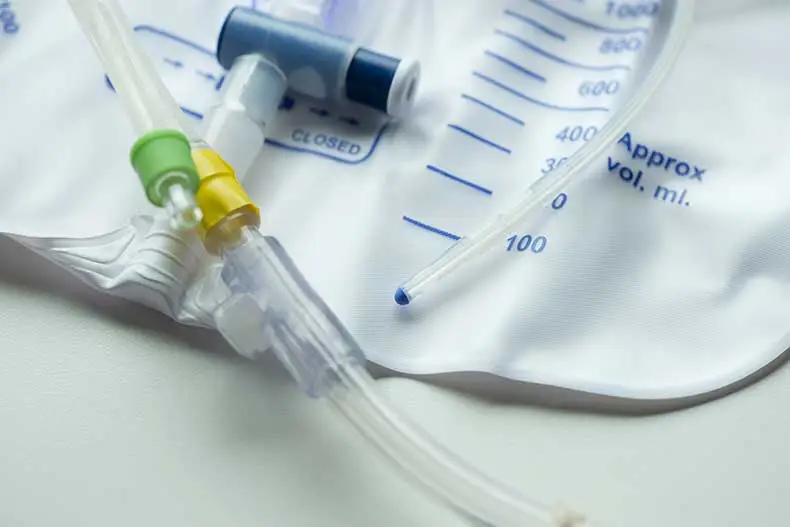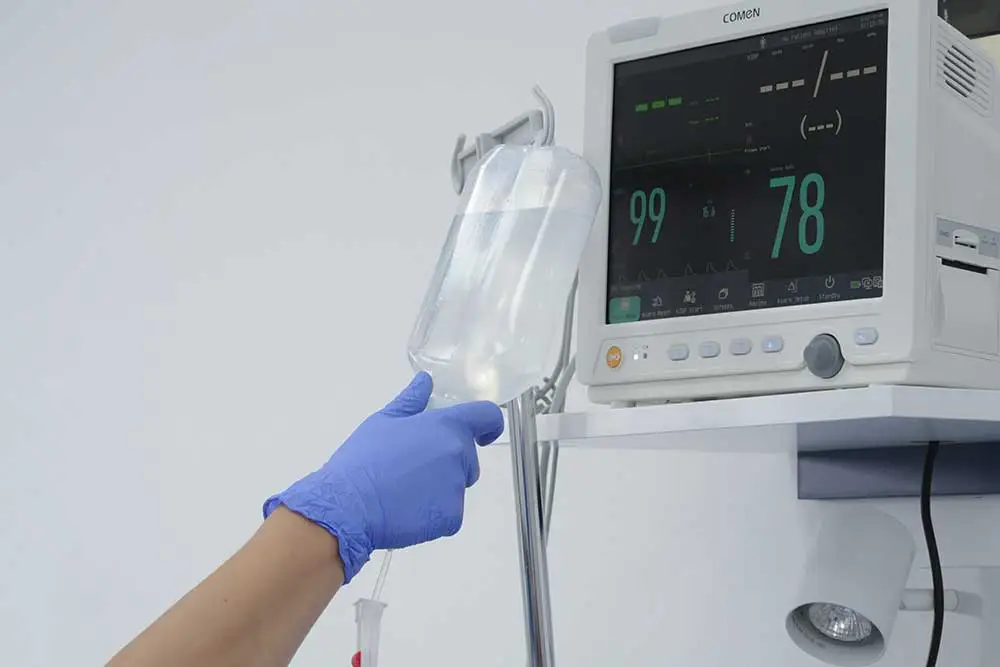Cocaine detoxification is a safe and reliable method of cleansing the body of this narcotic. At the same time, it is the only proper and effective approach to treating cocaine addiction.
However, detoxification from cocaine is only safe and effective when carried out in medically supervised conditions, under the care of qualified healthcare professionals.
Cocaine is a powerful stimulant drug that gives the user a false sense of superiority, confidence, security, and self-assurance. As a potent psychoactive substance, it can lead to addiction in a very short period of time. This drug has an exceptionally high potential for causing dependency. In some cases, a person may become addicted after just a single dose.
Due to the intense effects experienced while using cocaine, the individual often seeks to repeat the experience over and over again. This pattern of behaviour inevitably leads to the development of cocaine addiction. Like any other illness, if left untreated, it can have devastating consequences for both the addict and their family.
Coming to terms with the fact that addiction is present can be deeply distressing.
You might feel “stuck” and unsure of how to seek help. Addiction is a condition that is often misunderstood, with sufferers frequently blamed for a pattern of behaviour that is not entirely within their control.
Addiction arises when a substance interacts with the brain’s reward centre in a way that “convinces” the brain the drug is incredibly pleasurable. As the effects are reinforced through repeated use, the brain becomes reliant on that feeling of pleasure—essentially becoming addicted in the process.
As the brain’s reward centre begins receiving signals primarily from drug use, the drive to engage in naturally rewarding activities diminishes. The individual may grow distant from those they care about. As the addiction deepens, they often lose interest in everyday life and focus solely on “feeding” the addiction.
While detoxification from cocaine is technically possible at home, it is not advisable. In such cases, the addict is likely to experience extremely unpleasant withdrawal symptoms. As a result, relapse is common—meaning the person returns to using cocaine. This is why professional support during cocaine detoxification is essential to successfully overcoming the challenges caused by the drug.
What is cocaine and how does it affect the body?
Cocaine is an extremely powerful stimulant derived from the South American coca plant. It is available in several forms and can be consumed by smoking, snorting, or injecting it intravenously. As a stimulant, cocaine is often labelled a recreational drug—commonly used to boost energy levels and ward off fatigue for extended periods. Some users also take it to increase self-confidence or as a sexual enhancer.
Cocaine, when ingested, has a remarkably short breakdown time. It is rapidly absorbed into the bloodstream and begins to take effect almost immediately. However, its effects are extremely short-lived, typically lasting no more than 5 to 30 minutes.
Due to the rapid way in which cocaine levels diminish in the body, it is common for users to take the substance repeatedly in an attempt to maintain the “high” for as long as possible. As a highly addictive drug, long-term use significantly increases the risk of developing psychological dependence. In such cases, cleansing the body of cocaine can become more difficult and demanding. The more frequently a person uses cocaine, the more of the substance accumulates in their system.
Additionally, tolerance to cocaine builds quickly, meaning higher doses are needed to achieve the same effect. This escalation can lead to increased intake, which carries a greater risk of serious physiological harm.
Cocaine affects the body by constricting blood vessels, resulting in elevated blood pressure. Over time, prolonged use places considerable strain on the heart.
The immediate dangers associated with long-term cocaine use include an increased risk of heart attack, stroke, and a weakened immune system.
Detoxification from cocaine protects the addict’s physical health and represents the first step in the treatment of addiction. Withdrawal from cocaine can trigger severe psychological symptoms, which is why medically supervised care is essential. Physical symptoms may also occur, making continuous monitoring of the patient’s condition crucial during detox.

Detoxification from cocaine removes short-term and long-term negative consequences
One of the main reasons for undergoing cocaine detoxification is to eliminate the harmful effects caused by the drug. A cocaine detox centre, such as MedTim, is a specialised facility where you can safely and comfortably cleanse your body of cocaine and reverse the effects it has had.
Chronic and prolonged cocaine use inevitably leads to addiction, which can have devastating consequences for both mental and physical health. The effects of cocaine may be both short-term and long-term.
The short-term negative effects caused by cocaine appear shortly after the drug is consumed. In most cases, they last only a few minutes, although there have been instances where these effects have persisted for several hours.
On one hand, the short-term effects of cocaine may include euphoria, heightened alertness, increased talkativeness, reduced need for sleep, greater sensitivity to external stimuli such as sound, elevated blood pressure, increased heart rate, raised body temperature, and dilated pupils.
On the other hand, the negative acute effects of cocaine abuse include:
- Hallucinations and paranoia
- Irregular heartbeat and severe hypertension
- Significantly elevated body temperature (hyperthermia)
- Seizures and arrhythmias (irregular heartbeat)
Long-term negative effects caused by cocaine arise when an individual abuses the drug over an extended period—especially when it is taken in increasing doses and at shorter intervals. These long-term consequences affect nearly every organ in the body.
- Cardiovascular system: Heart attack, blood clot (thrombus) formation, and narrowing of blood vessels
- Respiratory system: Breathing difficulties, coughing up blood, chest pain, hoarseness, bronchial spasms, and damage or degeneration of the nasal mucosa
- Digestive system: Severe nausea, stomach pain, teeth grinding (bruxism), and dry mouth
- Central nervous system: Depression, anxiety, suicidal thoughts, insomnia or hypersomnia, nightmares, and stroke
- Immune system: Increased risk of autoimmune diseases such as lupus
What does a cocaine withdrawal crisis look like?
- How long the person has been abusing cocaine
- How frequently cocaine was used
- The size of the last dose taken
- The general amount of cocaine typically consumed
- The individual’s physical and mental health
- Whether the cocaine was mixed with other substances (such as heroin or alcohol)
- The person’s age, genetic predisposition (e.g. whether addiction runs in the family), and other similar factors
Cocaine detox – What are the psychological symptoms of a withdrawal crisis?
- Anxiety
- Depression
- Nightmares
- Changes in sleep patterns, including excessive sleepiness
- Increased appetite
- Paranoia
- Irritability
- Feelings of frustration or agitation
- Destructive or suicidal thoughts
- Difficulty with thinking and concentration
- Intense cravings for cocaine
- General emotional distress
These symptoms may include:
- Heart attack
- Stroke
- Delirium
- Severe heart palpitations

Detoxification of the body from cocaine – What are the physical symptoms of a withdrawal crisis?
- Persistent fatigue
- Pronounced restlessness linked to anxiety
- Generalised body aches, particularly muscle pain
- Shivering and tremors
How does a cocaine withdrawal crisis occur?
A cocaine withdrawal crisis begins when a cocaine addict stops using the drug. Addiction develops over time as the individual comes to rely on this powerful stimulant to feel and function normally.
The rate at which cocaine addiction develops can vary greatly between individuals. Genetic factors can significantly influence how quickly someone becomes addicted after first trying the drug.
Many of the effects of both addiction and withdrawal are linked to cocaine’s impact on dopamine neurotransmission in the brain. Cocaine use causes a sharp increase in dopamine activity—a chemical responsible for producing feelings of motivation and reward.
Over time, the brain becomes dependent on the artificially elevated dopamine levels, making it increasingly difficult to experience pleasure or motivation without the drug. This disruption plays a major role in the onset of withdrawal symptoms when cocaine use is stopped. The increase in dopamine activity caused by cocaine strongly reinforces the urge to use the drug repeatedly. However, with long-term use, the brain adapts to the constant excess of dopamine. As a result, it becomes less responsive to the drug’s effects, meaning increasingly larger doses are needed to achieve the same high. This is the brain’s way of attempting to maintain balance and avoid a withdrawal crisis.
Cocaine is often described as having an “explosive risk” of addiction, meaning that dependency can develop much more quickly compared to many other substances—even after only a few uses.
Cocaine detoxification at the MedTim Addiction Hospital effectively counteracts the effects of a withdrawal crisis. This makes the overall treatment more successful, as it greatly reduces the risk of relapse. At the same time, it ensures that the recovery process is safer, smoother, and more comfortable for the patient.
How long does it take to cleanse the body of cocaine?
The length of time it takes to cleanse the body of cocaine can vary depending on the type of cocaine used and the individual’s patterns of use. For instance, regular use of crack cocaine often results in a faster onset of withdrawal symptoms—sometimes within just a few hours of the last dose. Typically, acute withdrawal symptoms from cocaine last around three to four days. However, in some individuals, certain symptoms—particularly psychological ones—can persist for several weeks.
The severity and duration of long-term withdrawal symptoms differ from person to person.
People who have been addicted to cocaine for a long time are at risk of relapse if the drug is not effectively eliminated from the body. One study found that patients who scored highly on the Cocaine Withdrawal Difficulty Test were four times more likely to continue using cocaine than those with lower scores.
Medically supervised cocaine detox provides both medical and psychological support, ensuring a safe and comfortable withdrawal process. This professional care significantly reduces the risk of relapse by managing symptoms effectively and offering continuous guidance throughout the treatment.
Detoxification from cocaine takes place in several stages.
The first stage is known as the “crash” phase.
When an addict stops using cocaine—especially after prolonged use—this initial phase of withdrawal begins. During the breakdown phase, the individual often struggles to feel any pleasure or emotional relief.
Common symptoms during this stage include anxiety, excessive sleepiness, irritability, intense cravings for cocaine, and paranoia. Depression and suicidal thoughts are also not uncommon. Cognitive difficulties may arise, such as poor concentration, confusion, and mild memory issues.
Physical symptoms can also occur, including arrhythmia, tachycardia, cardiac arrest, severe dehydration, and tremors.
This phase typically lasts from one to several days.
Cocaine Detoxification – Second and Third Phases
Cocaine detoxification occurs in three phases. The second phase is the period of abstinence following the last use of cocaine. Withdrawal symptoms can persist for several weeks during this time. Common experiences include heightened cravings, irritability, mood swings, bouts of fatigue and lethargy, as well as difficulties with attention and concentration.
The third phase is known as the “extinguishing” phase. In this stage, the addict continues to experience cravings, particularly when exposed to environmental triggers associated with past cocaine use. To support recovery, it is crucial to avoid these triggers, often necessitating a change of environment during rehabilitation. Long-term issues such as apathy, mood fluctuations, and irritability may also persist during this phase.
Treatment for cocaine addiction begins with detoxification, which plays a vital role in the rehabilitation process. Cleansing the body of cocaine is essential for achieving long-term, successful recovery.
How to Make Cocaine Detox 100% Successful?
- The degree, intensity, and severity of the addiction
- The duration and quantity of cocaine use
- The purity of the cocaine consumed
- The method of consumption (smoking, snorting, or intravenous use)
- The individual’s general state of physical and mental health
- Genetic predispositions
- The presence of any co-occurring physical or psychiatric conditions
Every addict reacts differently to cocaine, which means the process, speed, and duration of detoxification will vary from person to person.
Cocaine detox is a comprehensive process that targets both the body and the mind. Attempting to cleanse the body of cocaine without professional support rarely leads to lasting success. Not only is self-detox dangerous and potentially life-threatening, but it also carries a high risk of relapse. Even if someone manages to abstain for a time, the symptoms of withdrawal can reappear suddenly—often triggering a return to drug use.
Under medically supervised conditions, cocaine detoxification prevents and mitigates the harmful effects of withdrawal and the damage caused by prolonged cocaine use.
Modern medicine, through a combination of pharmacotherapy, psychotherapy, and advanced medical equipment, can ease and eliminate the symptoms that most negatively impact the addict. Cocaine detox at the MedTim addiction treatment clinic not only clears the drug from the body but also helps the individual develop a strong aversion to cocaine—laying the groundwork for a long-term recovery.

Cocaine Detox is Possible in Just Two Weeks – Transform Your Life with Modern Treatment Methods at MedTim Clinic
The body needs to learn how to function without cocaine, and to that end, there are many available treatments that can support recovery from addiction. Cocaine detox is an extremely effective treatment that truly helps.
After successfully completing the detox programme, treatment shifts to addressing the underlying causes of addiction. Since cocaine addiction is psychological in nature, a continuous rehabilitation programme is usually necessary. It is helpful to teach former cocaine users how to recognise harmful thoughts about themselves that could lead to relapse. It’s also important to become aware of and identify situations in which they might be tempted to use cocaine again. Coping strategies and relapse prevention techniques can also be learned to help individuals recognise when they are feeling most vulnerable.
MedTim Clinic brings together a team of doctors who will support your needs and undoubtedly help you on your journey to recovery, making it possible to leave addiction behind for good.
Finding the right programme is crucial. Without it, it’s impossible to even begin the process of detoxing from cocaine. If you believe it will be difficult to resist temptation, then a clinic specialising in addiction treatment may be the best option for you.
Finding the best care for your needs involves weighing the pros and cons and making an informed decision. The process can be significantly easier with the help of professionals such as a doctor at the MedTim Clinic, as well as by seeking advice from an addiction specialist.
The staff at MedTim Clinic are available to you 24 hours a day, 7 days a week. You can call us at any time, and consultations at the clinic are completely free of charge.
We use modern, medically proven, safe, and effective treatment methods that will certainly help you leave cocaine addiction behind. Cocaine detox treatment is carried out under medically controlled conditions and under continuous supervision by doctors.
How Do We Conduct Treatment at the MedTim Clinic?
At the MedTim Clinic, before beginning the process of detoxifying the body from cocaine, we first assess the patient’s condition. Through a thorough diagnostic procedure, we evaluate the patient’s overall health and check for the presence of any coexisting physical or psychological conditions.
Following this assessment, we move on to stabilising the patient. We address and manage the symptoms of a cocaine withdrawal crisis. This is the most important, essential, and at the same time the most demanding phase of detoxification. As part of the detoxification process aimed at cleansing the body of cocaine, we apply appropriate pharmacotherapy to eliminate the symptoms that may arise during a cocaine withdrawal crisis.
Once detoxification from cocaine is complete, the patient receives a liquid implant – Naltrexone (a drug blocker). The effect of this injection lasts for 30 days, after which the patient should receive the same dose again for the following 30 days. It is recommended to use this drug blocker continuously for one year. Alongside the blocker, the patient is prescribed appropriate pharmacotherapy, and the continuation of psychotherapy is also advised.
However, completing the physical detox does not mean the recovery process is over. After detox, the patient participates in structured psychological therapy sessions such as group therapy, systemic family therapy, and cognitive-behavioural therapy. These sessions help prepare the patient mentally and emotionally for a new life without addiction. At the MedTim clinic, we address the root causes that led to the addiction in the first place. This approach ensures a much more effective and lasting recovery.
Recovery is possible in just two weeks! We know how.


